To accompany your Come Follow Me study for January 10-16
In addition to reading these chapters from Genesis and Moses, you may also want to:
- Read 2 Nephi 2:15–27
- See the video Come Follow Me LDS 2022 (Jan 10-16) Genesis 3-4; Moses 4-5 | Freedom and the Fall at https://www.youtube.com/watch?v=6i1gwgNZX1k
- See the video New Media Bible Genesis Project – 02 Adam and Eve at https://www.youtube.com/watch?v=A3iFEW5BNtc&list=PLHdHfiwn51u7X7wLjeL_8E2L-11jkm77I&index=4
- See the video HD New Media Bible Genesis Project – 03 Cain and Abel at https://www.youtube.com/watch?v=BW7aPDSfJPM&list=PLHdHfiwn51u7X7wLjeL_8E2L-11jkm77I&index=3
- See the study aids for this lesson from Book of Mormon Central at https://bookofmormoncentral.org/come-follow-me/old-testament/come-follow-me-2022-genesis-3-4-moses-4-5
If you would like a Kahoot game related to this material which you could use for personal study or use with your family or your class, click here: https://create.kahoot.it/share/genesis-3-4-and-moses-4-5/8050e9f9-c6b8-4d1f-86cd-a76d6937b627
Points to Ponder in Genesis 3 and Moses 4: The Fall
1. Why do Latter-day Saints view Adam and Eve in a more favorable light than do most other religions? What specific information do we have on the subject that they don’t?
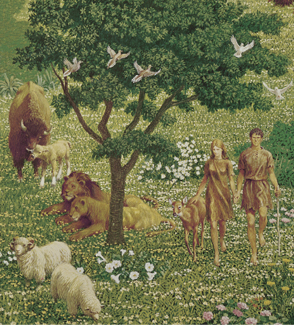
2. Is it true that Latter-day Saints view Eve as having been wiser than Adam, in that she first realized she needed to partake of the forbidden fruit to make procreation possible?

3. How do you deal with the objection, “It wasn’t fair for the Lord to give two contradictory commandments to Adam and Eve”? How do we reconcile this with Nephi’s assurance that the Lord gives no commandments without preparing the way for their fulfillment?

4. What parallels can you draw between the choices which faced Adam and Eve in Genesis 3 and those which face us today?
5. Many Bible skeptics have made fun of the idea of God taking a late afternoon stroll through the Garden (3:8). What could you point to that would make this verse more plausible?
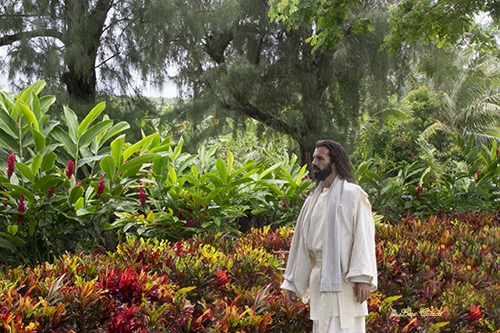
6. Moses 4 corresponds in general with Genesis 3 but has 32 verses instead of the 24 of Genesis. What are the main points missing from Genesis that have been restored in Moses?
7. What examples can you point to of Satan’s leading men “captive at his will” (Moses 4:4) who don’t hearken to the voice of the Lord?
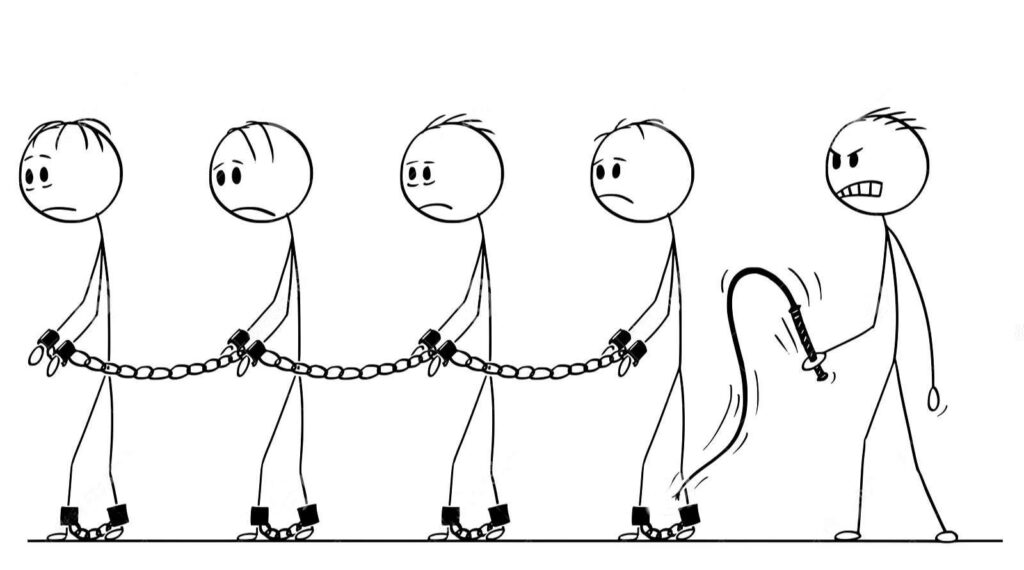
8. How much of what Satan told Eve was a lie, and how much was true? What do we learn from this?

9. The Lord’s making “coats of skins” to cloth Adam and Eve suggests He killed some poor animal or animals in order to do it. Why didn’t He make clothing out of cotton or wool, which would have avoided the taking of animal life?

10. What would have been wrong with Adam’s eating the tree of life after eating from the tree of knowledge of good and evil?
11. What aspects of the fall are we unlikely to understand fully at present?
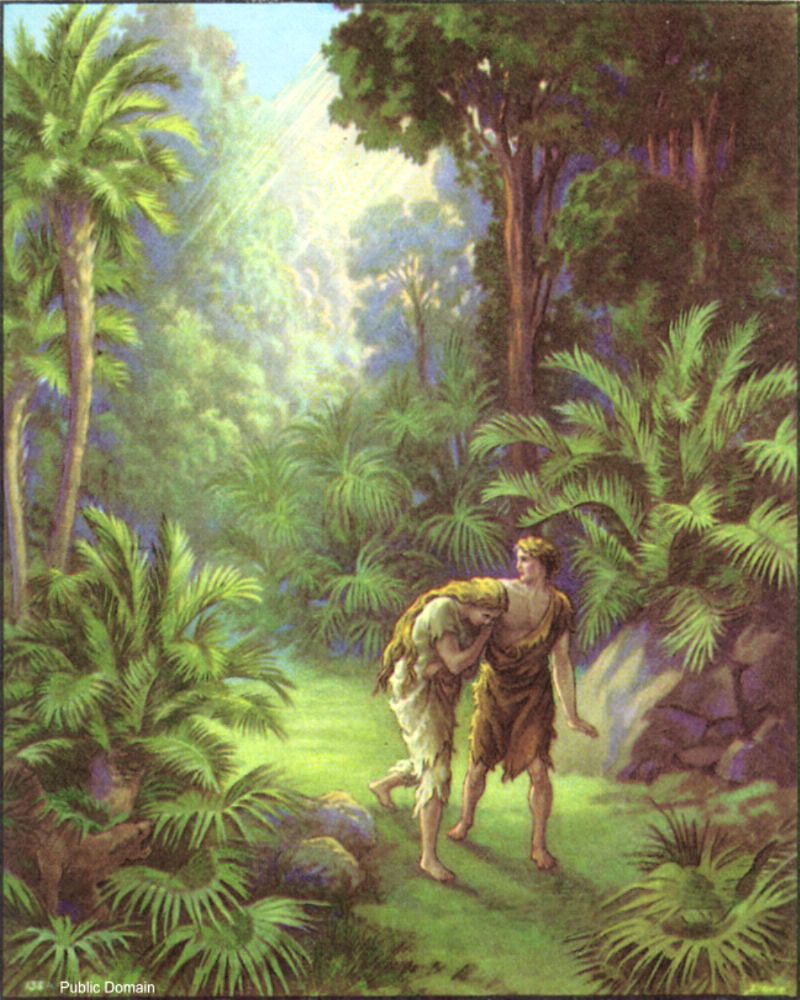
12. What is the most important thing for us to know about the fall?
WHAT’S WRONG?
Or, can you spot distortions of what is taught in Moses 4?
Many of the following statements are distortions of the facts in some sense, though some could be true, just to keep you on your toes. Some of them we hear all too often in our meetings and classes, and some are believed by non-Latter-day Saints. For each false statement, point out as many errors as possible and indicate what changes should be made to make the statement true.
13. In the great pre-mortal council in heaven, the Father called for plans for how affairs on the earth should be conducted and indicated that nominations for the position of Redeemer were now open. Two volunteers offered their services: Christ and Lucifer, each of whom was willing to be the Redeemer. In the subsequent voting, Christ won a two-thirds majority. Lucifer, the unlucky loser, was ultimately thrown out of heaven, when all he was trying to do was to be helpful.

14. Admittedly, Satan’s plan would have taken away man’s freedom, and admittedly Satan was somewhat of an egotist, wanting the credit for himself, but since under his plan everyone would have been saved, we could well have put up with a couple of minor disadvantages to achieve the greater good of universal salvation. In other words, provided you are saved (exalted), it makes little difference how it is accomplished.

15. Though some people try to steer a middle course, following neither God nor Satan, and perhaps believing in neither, they in fact cannot avoid being influenced or controlled by one or the other.
16. The “war in heaven” evidently ended approximately 6000 or more years ago.

17. The Adam and Eve story is merely symbolic of God’s placement of life on the earth. There is no evidence that Adam and Eve were actual historical personages nor that all inhabitants of the earth are descended from a single pair of ancestors.
18. The “garden of Eden” was not necessarily composed of literal vegetation but was a symbolic way of representing the state of spirituality in which Adam and Eve originally lived prior to the fall.

19. Except for Adam’s tragic fall, mankind could still be living in the paradise of Eden, as God intended should be the case.
20. The “forbidden fruit” of which Adam and Eve partook was not literally an apple, as Genesis suggests, but was a sexual union which resulted in the conception of their first child.

21. Since Satan, in tempting Adam and Eve, was furthering the Lord’s program, he should get more credit.

22. Since Eve was the first to eat of the forbidden fruit, women ever since have been cursed by having to be subservient to their husbands.

Points to Ponder in Genesis 4 and Moses 5: Adam’s Sacrifices; the Cain and Abel Story
23. What is the significance of 5:1, which says that Eve “did labor” with Adam? Shouldn’t she have stayed home with the kids?

24. How much of Moses 5:1-12 goes beyond what we learn from the corresponding verses in Genesis? How much of the additional material is significant?
25. What’s wrong with the following statement: “At the time the Lord gave Adam the law of sacrifice, he told him that it was symbolic of the sacrifice of the Only Begotten of the Father.”
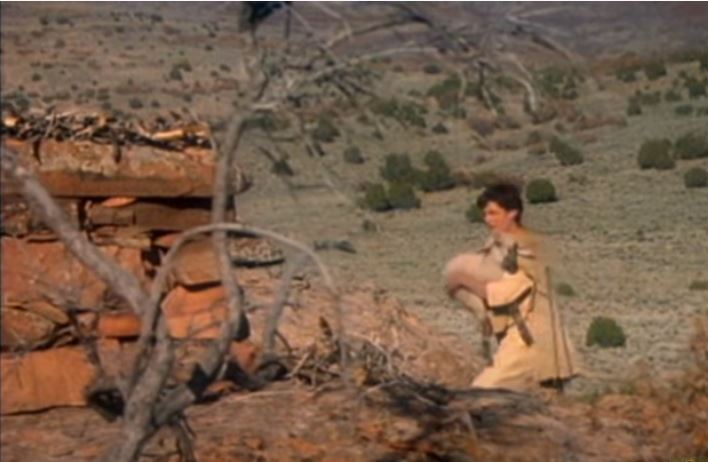
26. In how many ways was the sacrifice of the firstlings of Adam’s flocks a particularly fitting symbol of the Savior?
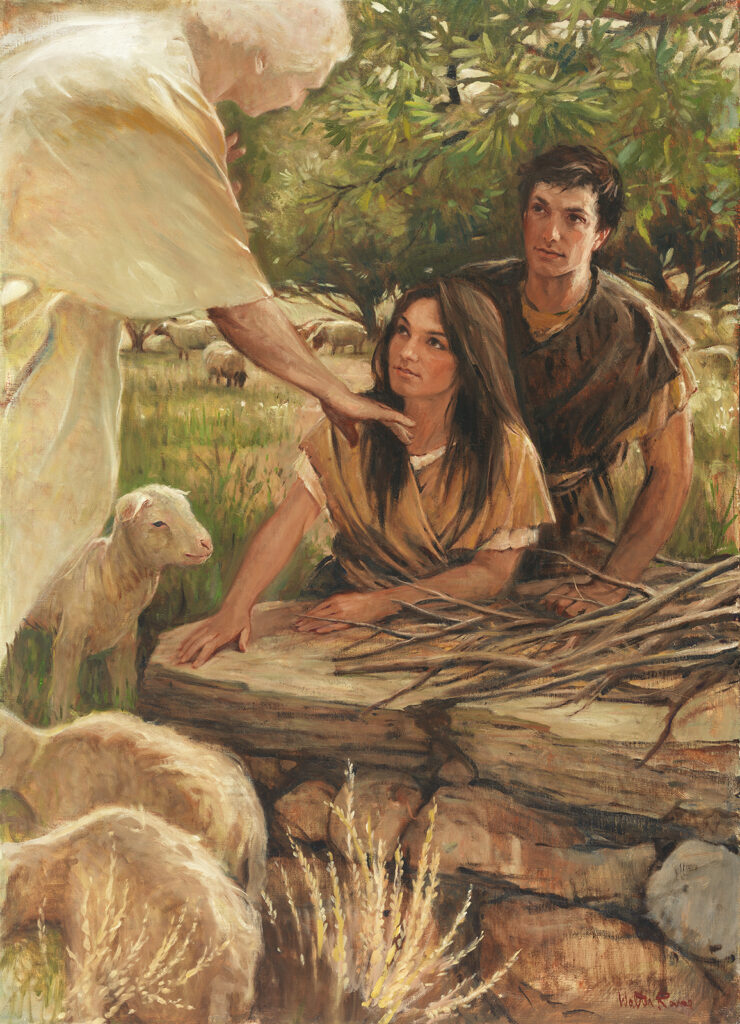
27. Agree or disagree: A Latter-day Saint should not blindly follow the leaders of the Church but should strive for a personal testimony that they are the Lord’s chosen leaders.
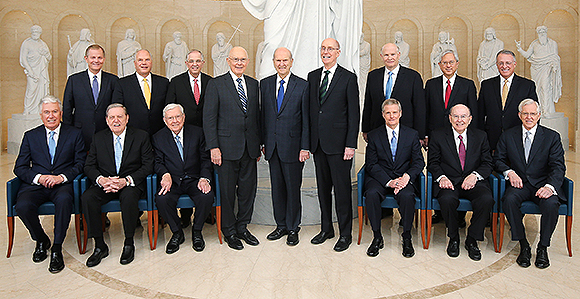
28 What’s wrong with the following account? “Cain and Abel both offered to the Lord a sacrifice representative of their best agricultural products. For reasons which Cain never understood, the Lord accepted Abel’s sacrifice but rejected his. In a rage of jealousy, Cain killed Abel, a crime which under today’s law would be considered second degree murder. In spite of Cain’s sorrow and repentance, the Lord would not forgive him but cast him forever out of his presence.”
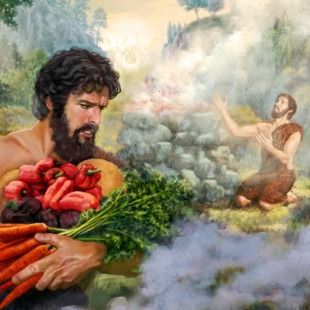
29. Agree or disagree: The Pearl of Great Price records Cain as receiving as many revelations from the Lord as from Satan.
30. Why on earth would Satan command Cain to offer an offering to the Lord?
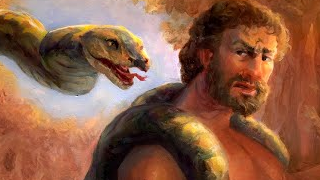
31. What was the correct answer to Cain’s question, “Am I my brother’s keeper,” and why?
32. The Book of Mormon paints secret combinations as being in a sense “contagious,” indicating that they came down from the time of Cain. But it also suggests that Cain’s techniques came to the attention of the Nephites neither from written records nor oral traditions. How, then, did they get them? And how can you quickly find out without using the index or Topical Guide and without having had to first memorize the Book of Mormon?
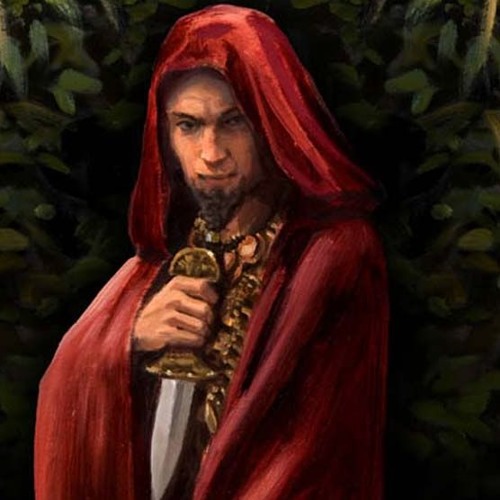
33. Why are “secret combinations” more dangerous than just ordinary wickedness?
34. What aspects of secret combinations mimic the Lord’s program? Why?
35. What is so tragically ironic about Cain’s first recorded words following his killing of Abel?
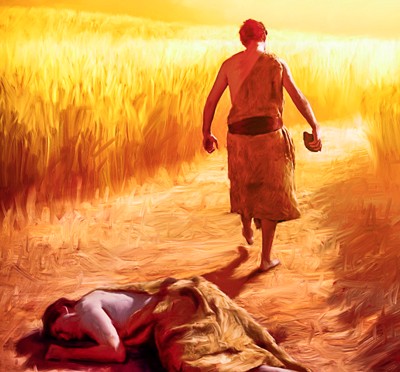
36. Agree or disagree: The majority of the children of Adam and Eve during the first 130 years of Adam’s life were more like Cain than Abel in their attitudes toward religion.
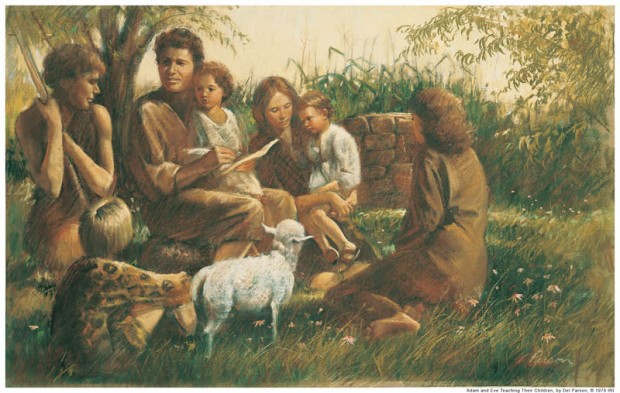
37. How can you account for the fact that a holy man like Enoch, builder of the city of Enoch, or Zion, could come from a home as depraved as that of Cain’s? (Moses 5:42)
38. Which verse suggests what’s wrong with the following statement? “From time to time, because of the wickedness of men, the Lord has totally removed his gospel from the earth and subsequently restored it when men were worthy.”
39. Suppose Lamech (Genesis 4:23) lived in a society which prescribed capital punishment for multiple murders but not for solo homicides. If you were the judge in his case, what sentence would you impose? How does the answer to this question become a key to understanding many other Old Testament passages?
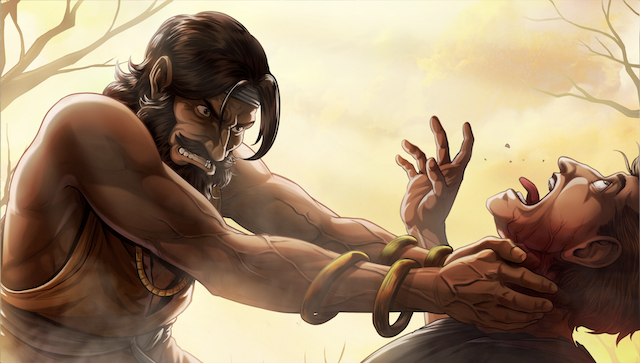
Possible answers to Points to Ponder in Genesis 3 and Moses 4: The Fall
1. Why do Latter-day Saints view Adam and Eve in a more favorable light than do most other religions? What specific information do we have on the subject that they don’t?
Passages such as Moses 5:10-11 and 2 Ne. 2:25 make it clear that Eve was deceived rather than defiant and that Adam made a conscious choice to eat of the forbidden fruit, choosing to obey the greater rather than the lesser commandment, in order that procreation might be possible and fulfill God’s purposes that we might grow in mortality rather than have a life of perpetual ease.
2. Is it true that Latter-day Saints view Eve as having been wiser than Adam, in that she first realized she needed to partake of the forbidden fruit to make procreation possible?
That is not what the scriptures say. Paul assures us, “Adam was not deceived, but the woman being deceived was in the transgression” (1 Timothy 2:14). We do not blame Eve for falling for Satan’s lies. She had never encountered a “talking serpent” or any other being which lied to her before, so she was no more “guilty” than a two year old child being lured by a stranger with candy.
James E. Talmage similarly says, “Eve was fulfilling the foreseen purposes of God by the part she took in the great drama of the fall; yet she did not partake of the forbidden fruit with that object in view, but with intent to act contrary to the divine command, being deceived by the sophistries of Satan, who also, for that matter, furthered the purposes of the Creator by tempting Eve; yet his design was to thwart the Lord’s plan. We are definitely told that ‘he knew not the mind of God, wherefore he sought to destroy the world’ [Moses 4:6]. Yet his diabolical effort, far from being the initiatory step toward destruction, contributed to the plan of man’s eternal progression. Adam’s part in the great event was essentially different from that of his wife; he was not deceived; on the contrary he deliberately decided to do as Eve desired, that he might carry out the purposes of his Maker with respect to the race of men, whose first patriarch he was ordained to be.” (Articles of Faith, pp. 69–70.)
This does not mean Adam was smarter than Eve, either. He no more understood the necessity of partaking of the forbidden fruit than did she, until Eve had partaken and was faced with expulsion. Only then does it seem to have been clear to either of them that procreation was going to be exceedingly difficult if they were not together. At that point, both Adam and Eve understood that Eve did not have the option of staying in the garden, but Adam had the choice to leave with her—breaking a lesser commandment in order to keep a greater one. We applaud both Adam and Eve equally for that decision.
3. How do you deal with the objection, “It wasn’t fair for the Lord to give two contradictory commandments to Adam and Eve”? How do we reconcile this with Nephi’s assurance that the Lord gives no commandments without preparing the way for their fulfillment?
Nephi is right, in general. But there are exceptions. As D&C 124:49 makes clear, if circumstances make it impossible to keep a commandment, the Lord may choose to rescind the commandment rather than grant miracles to allow men to keep it. In either case, the Lord rewards His children according to their desires and efforts, not according to their results.
In the case of Adam and Eve, it was important to give them the need to think for themselves, prioritize, and weigh consequences, just as it was important for them to fall and enter mortality, where they could grow in ways they could not without opposition. Prior to Eve’s partaking of the forbidden fruit, it is less than clear that the two commandments were in conflict. But after she was faced with expulsion from Eden, it was obvious that if she alone were cast out, and Adam stayed behind, they would not be doing much to multiply and replenish the earth. They needed to figure out that it was more important that “men might be” than that Adam get a gold star for being strictly obedient to the command not to eat of the forbidden fruit, continuing to enjoy a life of leisure by himself in the Garden of Eden, while his eternal companion fended for herself wherever she might end up after leaving his presence. The Lord was not in any way displeased with their choice. He allowed them to experience the consequences of their disobedience, but that was exactly what He planned in the beginning that they would do as part of their eternal progression.
4. What parallels can you draw between the choices which faced Adam and Eve in Genesis 3 and those which face us today?
As was the case with Adam and Eve, many, if not most, of our choices are not between good and evil but between good, better, and best. For example, do we work longer at the office and qualify for a promotion, or do we spend more time with family? Do we work longer on preparing our Sunday School lesson or make a visit to a sick widow? Do we spend extra funds on an unforgettable family vacation, or on food storage? Etc., etc.

5. Many Bible skeptics have made fun of the idea of God taking a late afternoon stroll through the Garden (3:8). What could you point to that would make this verse more plausible?
Moses 4:14, which is the Joseph Smith Translation version of Genesis 3:8, clarifies that it was Adam and Eve, not God, who were walking in the garden in the cool of the day when they heard the voice of the Lord speaking to them.
6. Moses 4 corresponds in general with Genesis 3 but has 32 verses instead of the 24 of Genesis. What are the main points missing from Genesis that have been restored in Moses?
- Moses 4 is in the first person. E.g., “I, the Lord God, spake unto Moses ….”
- Moses 4:1-4: Details of the war in heaven are added. This is probably the most significant addition of Moses 4 to the Genesis 3 record.
- Moses 4:6: Satan and the serpent are differentiated, making it appear that while Satan was the one doing the tempting, he had the words coming from the mouth of a real snake.
- Moses 4:6: Satan knew not the mind of God
- Moses 4:14: As they were walking
- Moses 4:15: Where goest rather than where are thou
- Moses 4:17: “If so thou shouldst surely die” [added]
- Moses 4:18: And commanded that she should remain with me [emphasizing that Adam was to stay with Eve]
- Moses 4:21: he shall bruise thy head [helping us understand that the reference is to Christ]
- Moses 4:25: for thou shalt surely die [added]
- Moses 4:26: for thus have I, the Lord God, called the first of all women, which are many. [added]
- Moses 4:28: said unto mine Only Begotten [added]
- v. 30: Sentence added to the effect that the Lord’s words must all be fulfilled
- v. 31: cherubims changed to cherubim [as the term is already plural in the Hebrew]
- v. 32: new verse: These are the words I spoke unto Moses. Show them only to them that believe.
7. What examples can you point to of Satan’s leading men “captive at his will” (Moses 4:4) who don’t hearken to the voice of the Lord?
Sin is demonstrably addictive–e.g., smoking, drug use, pornography, swearing, and virtually all bad habits. When people have followed Satan for sufficient time and with sufficient intent and intensity, they lose their will and hence their capacity to change, and they are snared by the “chains of hell” (Alma 5:7). In time it can become “everlastingly too late” for them. (Hel. 13:38.)
8. How much of what Satan told Eve was a lie, and how much was true? What do we learn from this?
It was true that eating the fruit would bring a knowledge of good and evil. It was partly true that it would lead to godhood, though only because of the intervention of a Savior and after the passage of much time. There was a sliver of truth in Satan’s claim that Adam and Eve would not die, because their physical death did not occur for nearly a millennium, and their spirits would never die. Thus we see that Satan will tell partial truths to render his message more believable and palatable.
9. The Lord’s making “coats of skins” to cloth Adam and Eve suggests He killed some poor animal or animals in order to do it. Why didn’t He make clothing out of cotton or wool, which would have avoided the taking of animal life?
Perhaps this was His way of dramatizing that the fall really did introduce death into the world and that transgression of God’s laws has serious consequences. Whatever animal He killed was probably killed humanely and was likely happier returning to the presence of its maker, anyway.
10. What would have been wrong with Adam’s eating the tree of life after eating from the tree of knowledge of good and evil?
Alma 42:5 tells us: “If Adam had put forth his hand immediately, and partaken of the tree of life, he would have lived forever, according to the word of God, having no space for repentance; yea, and also the word of God would have been void, and the great plan of salvation would have been frustrated.” Perhaps it has something to do with the fact that one is resurrected with whatever type of body he is qualified to occupy eternally, and if Adam had been rendered immortal at that time, he could not have qualified for celestial glory and would have had to settle for an inferior body. It might be comparable to the student who has failed an exam or failed to turn in homework being grateful for the instructor’s extension of time in which to turn in the missing work during the holidays in order to get a better grade.
11. What aspects of the fall are we unlikely to understand fully at present?
- Just how it happened
- Additional details of why Adam and Eve seemingly had two conflicting commandments given to them
- Whether Adam and Eve lacked power, knowledge, or merely opportunity to have reproduced prior to the fall
- Whether or not there was procreation or death in the animal kingdom prior to the fall
- What kind of fruit they ate
- Why the wearing of clothes seemed urgent after the fall but not before
- Whether the earth itself fell through space at the time of man’s fall, as some have taught
- Etc.
12. What is the most important thing for us to know about the fall?
Our present need for a Savior
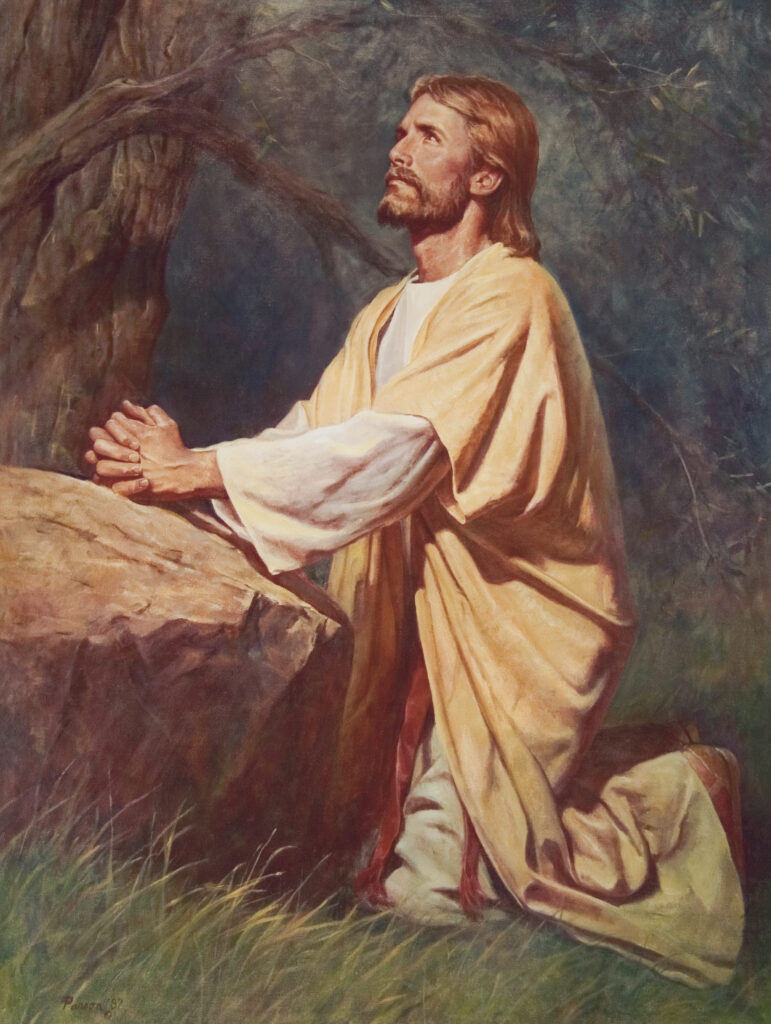
WHAT’S WRONG?
Or, can you spot distortions of what is taught in Moses 4?
Many of the following statements are distortions of the facts in some sense, though some could be true, just to keep you on your toes. Some of them we hear all too often in our meetings and classes, and some are believed by non-Latter-day Saints. For each false statement, point out as many errors as possible and indicate what changes should be made to make the statement true.
13. In the great pre-mortal council in heaven, the Father called for plans for how affairs on the earth should be conducted and indicated that nominations for the position of Redeemer were now open. Two volunteers offered their services: Christ and Lucifer, each of whom was willing to be the Redeemer. In the subsequent voting, Christ won a two-thirds majority. Lucifer, the unlucky loser, was ultimately thrown out of heaven, when all he was trying to do was to be helpful.
False! God didn’t call for recommendations but presented a fully formulated plan before the council, including his selection of Jesus to be the Savior, for a sustaining vote. Satan’s counter-proposal was clearly out of order. More importantly, it would not have worked! One could never make man into a free, independent, God-like being by force. There was no “luck” involved here. Satan deliberately rebelled and fought against God, and we need waste no time feeling he got a raw deal.
14. Admittedly, Satan’s plan would have taken away man’s freedom, and admittedly Satan was somewhat of an egotist, wanting the credit for himself, but since under his plan everyone would have been saved, we could well have put up with a couple of minor disadvantages to achieve the greater good of universal salvation. In other words, provided you are saved (exalted), it makes little difference how it is accomplished.
False! Please refer once again to the comments on the preceding question. If the only thing wrong with his plan was his egotism and ambition, we should have embraced Satan’s plan with enthusiasm. The much more basic problem was that his proposal couldn’t work! It was a lie and a fraud of the worst sort from the beginning. It’s a little like asking if you’d be interested if I offered to sell you a spray which would render you invisible, along with an antidote to make you visible again whenever you wanted, for only $100 for both bottles. It would be preposterous for anyone to give me the $100, since I could not produce any such products. Nor could Lucifer have saved and exalted anyone without giving them the agency God’s plan afforded.
15. Though some people try to steer a middle course, following neither God nor Satan, and perhaps believing in neither, they in fact cannot avoid being influenced or controlled by one or the other.
True! That seems to be the clear meaning of Moses 4:4. The very effort at neutrality is in compliance with Satan’s desires.
16. The “war in heaven” evidently ended approximately 6000 or more years ago.
False. It hasn’t ended yet. Hugh B. Brown once said: “The war which began in heaven and has been going on ever since‑‑a war in which the immortal souls of the children of men are at stake‑‑is about to reach a climactic point.” (Conference Report, April 1968, p. 106.) Marion G. Romney said: “Free agency is the principle against which Satan waged his war in heaven. It is still the front on which he makes his most furious, devious, and persistent attacks.” (Conference Report Oct. 1960, p. 75.)
17. The Adam and Eve story is merely symbolic of God’s placement of life on the earth. There is no evidence that Adam and Eve were actual historical personages nor that all inhabitants of the earth are descended from a single pair of ancestors.
False. We have excellent evidence of Adam’s and Eve’s historicity, including the universal testimony of all prophets who have spoken on the subject, and the eye-witness testimony of Joseph Smith, who saw them both in vision.
18. The “garden of Eden” was not necessarily composed of literal vegetation but was a symbolic way of representing the state of spirituality in which Adam and Eve originally lived prior to the fall.
False. Moses 3:9 clearly indicates that this was a real garden, with real trees, which could be seen with the eyes, and which produced edible fruit.
19. Except for Adam’s tragic fall, mankind could still be living in the paradise of Eden, as God intended should be the case.
False. Except for Adam’s necessary fall, mankind would still be living in the spirit world, waiting for their opportunity to be born, as with Eve’s expulsion from the Garden, Adam would have been hard pressed to procreate by himself.
20. The “forbidden fruit” of which Adam and Eve partook was not literally an apple, as Genesis suggests, but was a sexual union which resulted in the conception of their first child.
False! Though neither Genesis nor Moses identifies the forbidden fruit as an “apple,” there is every reason to believe it to be a literal fruit. It could not have been sexual union, as that was not forbidden but commanded as the means of multiplying and replenishing the earth. In so instructing Adam and Eve, the Lord clearly married them and sanctioned their use of their reproductive powers.
21. Since Satan, in tempting Adam and Eve, was furthering the Lord’s program, he should get more credit.
As discussed previously, Satan was not trying to further the Lord’s work but destroy it. The Lord judges according to the thoughts and intents of the heart, not the actual deeds one does.
22. Since Eve was the first to eat of the forbidden fruit, women ever since have been cursed by having to be subservient to their husbands.
False. As we have already seen, Eve was not “guilty” at all, but was honestly deceived by Satan. And though men are given the assignment to be servant leaders in their homes, women are not thereby rendered “subservient” in the normal meaning of that word. Though they are told to submit themselves to their husbands (Eph. 5:22), Paul indicated that both sexes were to submit themselves to each other, each seeking the welfare of the other before their own (Eph. 5:21). In the true order, women are not “cursed by having to be subservient to their husbands” but rather are intended to be blessed by having a husband assigned to look after their welfare.
Possible answers to Points to Ponder in Genesis 4 and Moses 5: Adam’s Sacrifices; the Cain and Abel Story
23. What is the significance of 5:1, which says that Eve “did labor” with Adam? Shouldn’t she have stayed home with the kids?
This is a somewhat facetious question, of course. No doubt both were home with the kids, as they labored to till the ground or otherwise provide for their needs. On the larger question of whether women should work outside of the home, modern prophets have discouraged it, unless it was absolutely necessary. Recognizing that some must work outside the home, President Hinckley has said simply, “Do the best you can.”
24. How much of Moses 5:1-12 goes beyond what we learn from the corresponding verses in Genesis? How much of the additional material is significant?
Almost this entire section is new. Significant additions seem to include:
- Adam’s and Eve’s many children before the birth of Cain and Abel
- the revelation they received from the Lord concerning sacrifice and the plan of redemption
- Adam’s willingness to sacrifice before knowing the reason why
- Adam’s and Eve’s recognition of the blessings of the fall
- Adam’s and Eve’s efforts to teach their children
25. What’s wrong with the following statement: “At the time the Lord gave Adam the law of sacrifice, he told him that it was symbolic of the sacrifice of the Only Begotten of the Father.”
At the time He gave him the law, He didn’t tell him what the purpose was. Only after demonstrating his obedience did Adam learn of the symbolism and purpose behind the commandment.
26. In how many ways was the sacrifice of the firstlings of Adam’s flocks a particularly fitting symbol of the Savior?
- The lamb was symbolic of the Lamb of God, perfectly meek and submissive to the will of the Father.
- The requirement that the sacrifice be a firstborn symbolized Christ’s firstborn status.
- Both were male.
- In both cases blood was shed.
- We later learn that both were without blemish.
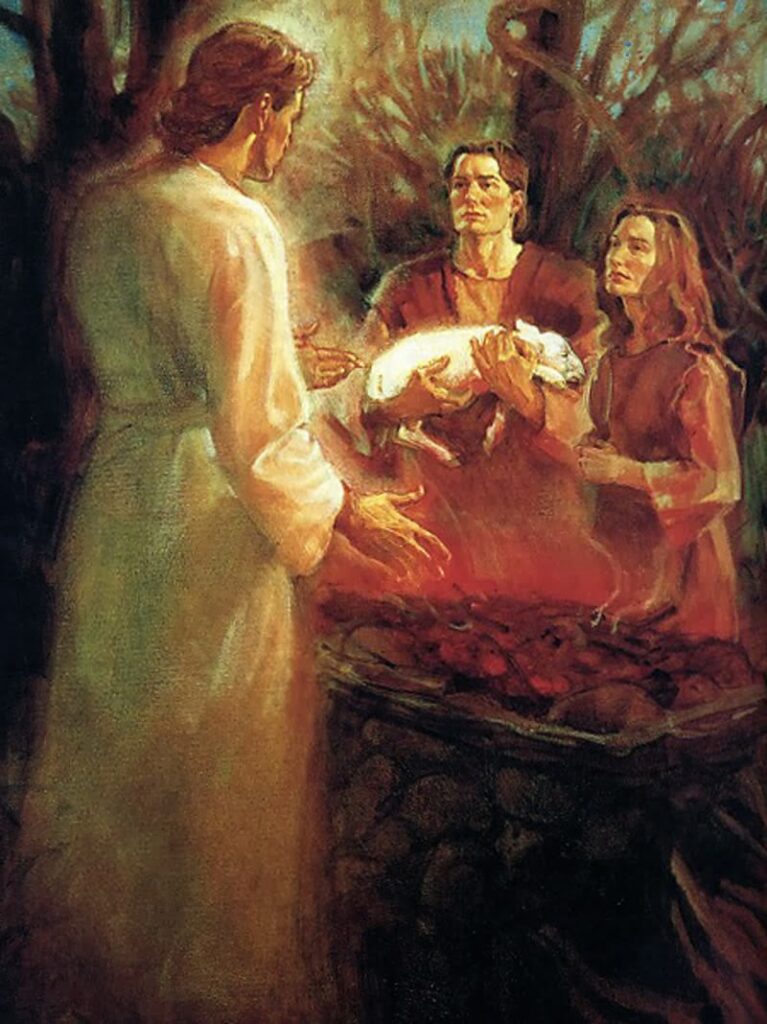
27. Agree or disagree: A Latter-day Saint should not blindly follow the leaders of the Church but should strive for a personal testimony that they are the Lord’s chosen leaders.
Agree, but following those whose counsel has always proven helpful in the past is hardly “blindly” following. While all should strive for a personal testimony of the divinity of the calling of a prophet, we would do well to follow while working on getting that testimony and not defer obedience unless and until such testimony comes.
28. What’s wrong with the following account? “Cain and Abel both offered to the Lord a sacrifice representative of their best agricultural products. For reasons which Cain never understood, the Lord accepted Abel’s sacrifice but rejected his. In a rage of jealousy, Cain killed Abel, a crime which under today’s law would be considered second degree murder. In spite of Cain’s sorrow and repentance, the Lord would not forgive him but cast him forever out of his presence.”
Cain knew full well that he was supposed to offer an animal sacrifice rather than the fruit of the field. He deliberately followed Satan’s urging to disobey on this point. His killing of Abel was premeditated murder, prompted in part by his desire to appropriate Abel’s flocks. Cain was sorry only for the consequences, not for the murder. Having so deliberately gone against light and truth, he had neither the desire nor the ability to repent and remained unforgiven, not because of the Lord’s vengeance but because of his own decisions.
29. Agree or disagree: The Pearl of Great Price records Cain as receiving as many revelations from the Lord as from Satan.
Agree. He hears from Satan in 5:18 and 5:29 and from the Lord in 5:22-25 and 5:34-40.

30. Why on earth would Satan command Cain to offer an offering to the Lord?
Perhaps to mock the ordinance of sacrifice, knowing that Cain’s offering would be a perversion of it. Perhaps to get Cain in trouble and set up the chain of events which would lead to Cain’s total rebellion against the Lord.
31. What was the correct answer to Cain’s question, “Am I my brother’s keeper,” and why?
The correct answer was “no.” A “keeper” is what one would find in a zoo. Cain was not Abel’s custodian, guard, or master, but he was surely his brother and should have been his friend, in which capacities he might well have known of Abel’s whereabouts and certainly would not have harmed him.

32. The Book of Mormon paints secret combinations as being in a sense “contagious,” indicating that they came down from the time of Cain. But it also suggests that Cain’s techniques came to the attention of the Nephites neither from written records nor oral traditions. How, then, did they get them? And how can you quickly find out without using the index or Topical Guide and without having had to first memorize the Book of Mormon?
A cross reference from Moses 5:25 leads us to Helaman 6:26-29, which makes it clear that the Nephites, like Cain, experienced Satanic revelation.
33. Why are “secret combinations” more dangerous than just ordinary wickedness?
They have the strength which comes with numbers, enhanced by the cloak of secrecy in which they veil their activities. They may be directed more overtly by Satan than lesser forms of wickedness. They generally involve murder, at least as an accepted principle.
34. What aspects of secret combinations mimic the Lord’s program? Why?
One could argue that Satan counterfeits every aspect of the gospel in some way to appeal to those who are attracted by certain features of the gospel but are not interested in its commitments. For example, secret combinations may include elements of revelation, priesthood, oaths, covenants, and ordinances, as well as a Satanic secrecy in place of the sacred reverence which prevents our freely discussing the temple ceremonies.
35. What is so tragically ironic about Cain’s first recorded words following his killing of Abel?
He exclaimed, “I am free,” when through his actions he had deprived himself eternally of the freedom he might have had. “It shall be unto thee according to his desire,” the Lord warned, which sounds like anything but freedom. Through his sin Cain lost the Spirit of the Lord and the power of the Lord, which are the essence of freedom. He lost the freedom to have productive crops, to enjoy the presence of the Lord (through his Spirit), and the freedom to have an eternal exaltation.
36. Agree or disagree: The majority of the children of Adam and Eve during the first 130 years of Adam’s life were more like Cain than Abel in their attitudes toward religion.
It appears that way from 5:13, 5:27, 5:56-57, and similar passages.
37. How can you account for the fact that a holy man like Enoch, builder of the city of Enoch, or Zion, could come from a home as depraved as that of Cain’s? (Moses 5:42)
This is a trick question. See the footnote to Moses 5:42. This was a different Enoch, and a different city.
38. Which verse suggests what’s wrong with the following statement? “From time to time, because of the wickedness of men, the Lord has totally removed his gospel from the earth and subsequently restored it when men were worthy.”
Moses 5:59 gives us reason to believe that even in times of apostasy and the absence of priesthood authority, the Lord’s gospel has remained to some extent on the earth to bless those who were willing to hear and accept it, even in part. For example, God has always been eager to have His children believe in him, call upon Him in prayer, repent of their sins, and live according to their consciences, even when baptism by legitimate authority and the full gift of the Holy Ghost were not available.
39. Suppose Lamech (Genesis 4:23) lived in a society which prescribed capital punishment for multiple murders but not for solo homicides. If you were the judge in his case, what sentence would you impose? How does the answer to this question become a key to understanding many other Old Testament passages?
It looks like the most we could sentence Lamech to in such a hypothetical society would be life in prison. This is evidently a case of synonymous parallelism, common in Hebrew literature, in which the same idea is repeated in different words for the sake of emphasis or simply due to a feeling that it was thus more poetically beautiful. Thus, the man Lamech had slain for having wounded him was likely the same as the young man he slew for having hurt him. Moses 5:50 further supports the idea that Lamech killed only one person. This feature of Hebrew literature will help us a great deal in understanding later passages in Psalms, Proverbs, an Isaiah, among others.
